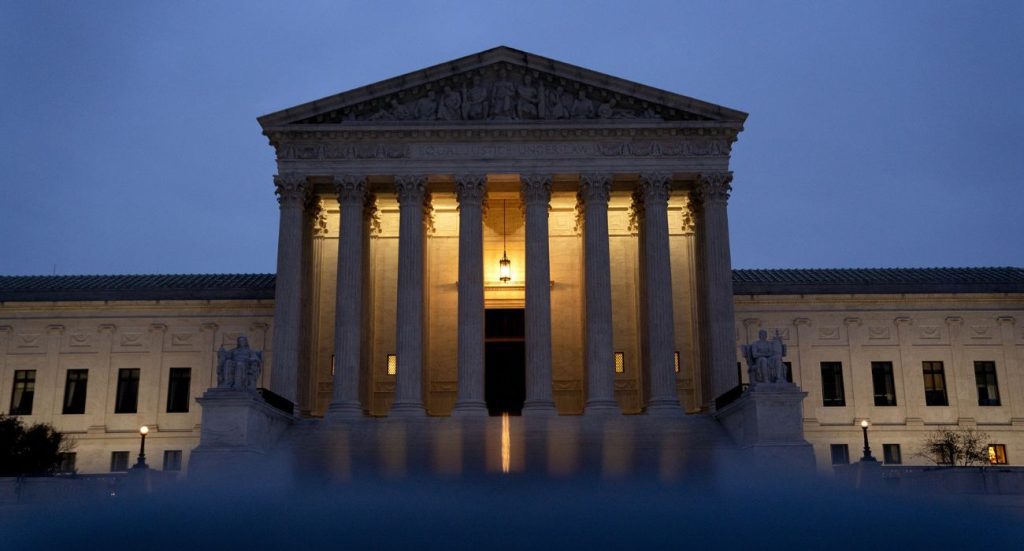In an important decision, the Supreme Court has allowed Texas farmer Richie DeVillier to take the State of Texas to federal court under the Fifth Amendment.
This ruling is a big step forward for DeVillier after his family farm in Winnie was badly flooded. According to the SCOTUS opinion, DeVillier is joined by 120 other property owners affected by the case. was listed The issue started when the Texas Department of Transportation built a 3-foot barrier near DeVillier’s property on Interstate 10. While it stopped flooding to the south, it caused flooding to the north, destroying DeVillier’s home, orchard, and livestock.
In response, DeVillier sued the state in a Texas district court, citing the Texas Constitution and the Fifth Amendment's “Takings Clause.”
However, the state moved the lawsuit to federal court and tried to dismiss it, claiming the plaintiffs couldn't directly sue the state under the Fifth Amendment.
The federal district court ruled in favor of DeVillier, but the U.S. 5th Circuit Court of Appeals overturned the decision. This led DeVillier to appeal to SCOTUS. arguing In a unanimous opinion written by Justice Clarence Thomas, SCOTUS held that Texas law can be used as a basis for citizens seeking compensation under the Fifth Amendment, reinstating DeVillier’s victory at the district court level.
Despite this, Paxton claimed victory, stating that citizens should sue under state law unless Congress has said otherwise.
Daniel Charest of the Burns Charest law firm emphasized the significance of the ruling, noting that DeVillier now has two ways to sue the state and seek damages. just Justice Clarence Thomas wrote the unanimous opinion that Texas law can be used as a cause of action for citizens seeking compensation under the Fifth Amendment.The ruling effectively reinstated DeVillier’s initial victory at the district court level and empowered him to pursue damages against the state. This Despite DeVillier’s favorable outcome, Paxton claimed victory.
De“For as long as Texas has been Texas, it has recognized that property rights are crucial to a free society. Under the U.S. Constitution, such claims should be pursued under state law unless Congress has said otherwise. I’m pleased the Supreme Court agreed with us unanimously that citizens should sue under Texas law,” said Paxton in a press release.
Daniel Charest of the Burns Charest law firm stressed the significance of the ruling, noting that DeVillier now possesses two avenues to sue the state and seek redress for the damages incurred. Robert McNamara, the Institute for Justice attorney who represented DeVillier in the appeals process,.
rebuked Paxton’s victory claim, asserting that SCOTUS’s decision affirmed DeVillier’s right to litigate his Fifth Amendment claims. “[Tuesday’s] ruling makes clear that Texas can be sued under the Fifth Amendment and that the claims Texas wanted thrown out will instead go to trial in that same federal district court — in other words, after Texas spent untold amounts of time and taxpayer dollars trying to get Richie’s Fifth Amendment claims dismissed, Richie will get to litigate his Fifth Amendment claims. The party that gets what he wants is the party that won. What Texas did is called losing. Only a politician would claim to have won a case he lost,” stated McNamara, per The Texan. With SCOTUS’s approval of the lawsuit, DeVillier and his legal team
are ready
to move forward with the trial court process, determined to hold the state accountable for allegedly destroying his family farm. In a groundbreaking judgment, the Supreme Court granted Texas farmer Richie DeVillier the chance to sue the State of Texas in federal court under the protections of the Fifth Amendment. The decision signifies a significant advancement in DeVillier’s legal pursuit following the devastating flooding of his fifth-generation family farm in Winnie. According to the […] the trial court process, determined to hold the state accountable for purportedly destroying his family farm.



